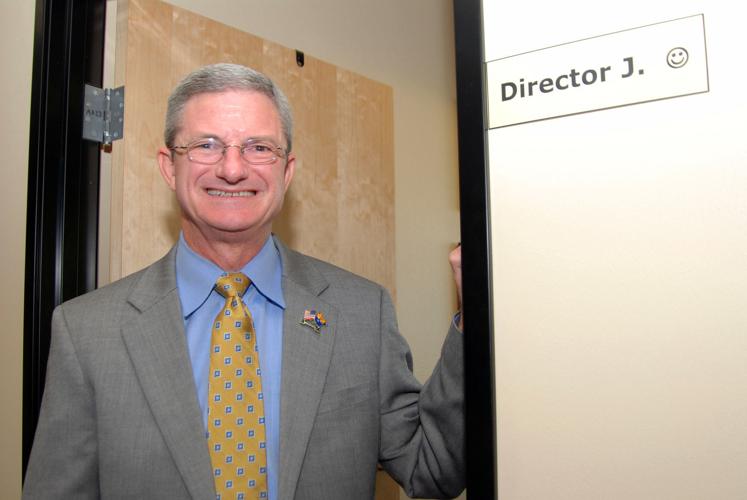Former Department of Economic Security director Tim Jeffries is not disappearing quietly after his pre-Christmas firing by Gov. Doug Ducey.
In interviews and emails, Jeffries is defending his performance and arguing he was just carrying out Ducey’s wishes by firing 475 employees over less than two years.
In an email Jeffries originally sent to Ben Giles of the Arizona Capitol Times, he noted he had fired only 6 percent of the agency’s employees. That, he noted, was less than the goal presented to him and other agency heads by the governor — weeding out “10 percent of any category.”
Here’s what Jeffries quoted as his instructions from the governor, which Jeffries placed in a PowerPoint presentation:
Be wedded to a “promote the best; weed out the worst” philosophy.
Specifically look for positive role models/examples that can be exported elsewhere in the agency as well as the broader administration.
The Bell Curve is a near-universal phenomenon. Figure out a way to eliminate the worst 10% of any category.
Use the personnel/civil service reforms passed by the Brewer administration to manage your agency. It is a tool Arizona has that few other states do. If there are employees who are clearly under-performing and ill-serving the taxpayers, then take steps to replace them with someone who will do better.
The notion of firing the worst 10 percent of a company’s employers was popularized by former GE CEO Jack Welch. It was referred to informally as “rank and yank.” And GE, the company that popularized the practice, abandoned it a decade ago.
While incorrigible underperformers should be fired, the practice of such “forced rankings” — firing the lowest-ranked 10 percent — has been debunked by researchers, such as Stanford University’s Jeffrey Pfeffer and Robert Sutton. The randomness of 10 percent is one problem, but so are the negative effects on the workforce’s productivity, they found.
In Jeffries’ case he negated any reductions he might have made in the workforce by replacing most everyone he fired and asking for budget increases on top of that.
None of this changes my perception that Jeffries behaved like a cult leader in his management of the DES and deserved to be fired. To reiterate: He frequently recorded video messages that employees had to watch when they turned on their computers each day, he quickly fired employees perceived to be deviating from the GOP line, he wrote agency-wide emails addressed to his “haters,” he used a smiley face as a creepy logo that even adorned security guards’ uniforms, and the agency stockpiled weapons in the basement under his watch.
Even considering Jeffries’ protests, the firing was the right thing to do.
But it’s worth noting that Jeffries wasn’t freelancing when he fired all those people and worked to reduce the DES payroll. He was following orders.
McSally on Ethics Office
A fast-hitting controversy briefly engulfed the U.S. House this week when Republican members convened for their first meeting after the new year and, strangely, adopted as their first order of business weakening the Office of Congressional Ethics.
This independent office, formed in 2008 after a series of ethics scandals, would have been put under the purview of the House Ethics Committee, effectively losing its independence.
The initial vote was strictly among Republican lawmakers and taken behind closed doors, so it’s impossible to verify how individual members voted. But the spokesman for Rep. Martha McSally, Patrick Ptak, told me she “voted ‘no’ on the amendment (Monday) night and believes that any approach to reform the OCE should be bipartisan.”
After a public outcry, Republican leaders removed the change before it came to the House floor on Tuesday.
Chamber contributions
A week ago I reported that the Arizona Chamber of Commerce had donated far more money to the anti-marijuana-legalization campaign than it had to the anti-minimum-wage-increase campaign.
That was true, but, it turns out, even more true than I reported. The Arizona Chamber of Commerce and Industry donated $1,493,000 to the anti-Prop. 205 campaign. It donated just $25,037 to the anti-Prop. 206 campaign.
Instead of fighting the minimum-wage increase during the political campaign, the chamber and its allies are fighting the increase in court.
Beard for treasurer?
You may have heard the word that former Pima County GOP chairman Bill Beard is running for a statewide treasurer post.
He is. But it’s probably not the treasurer job you’re thinking of. Beard is running for treasurer of the Arizona GOP, not for state treasurer, the job held by Republican Jeff DeWit.







